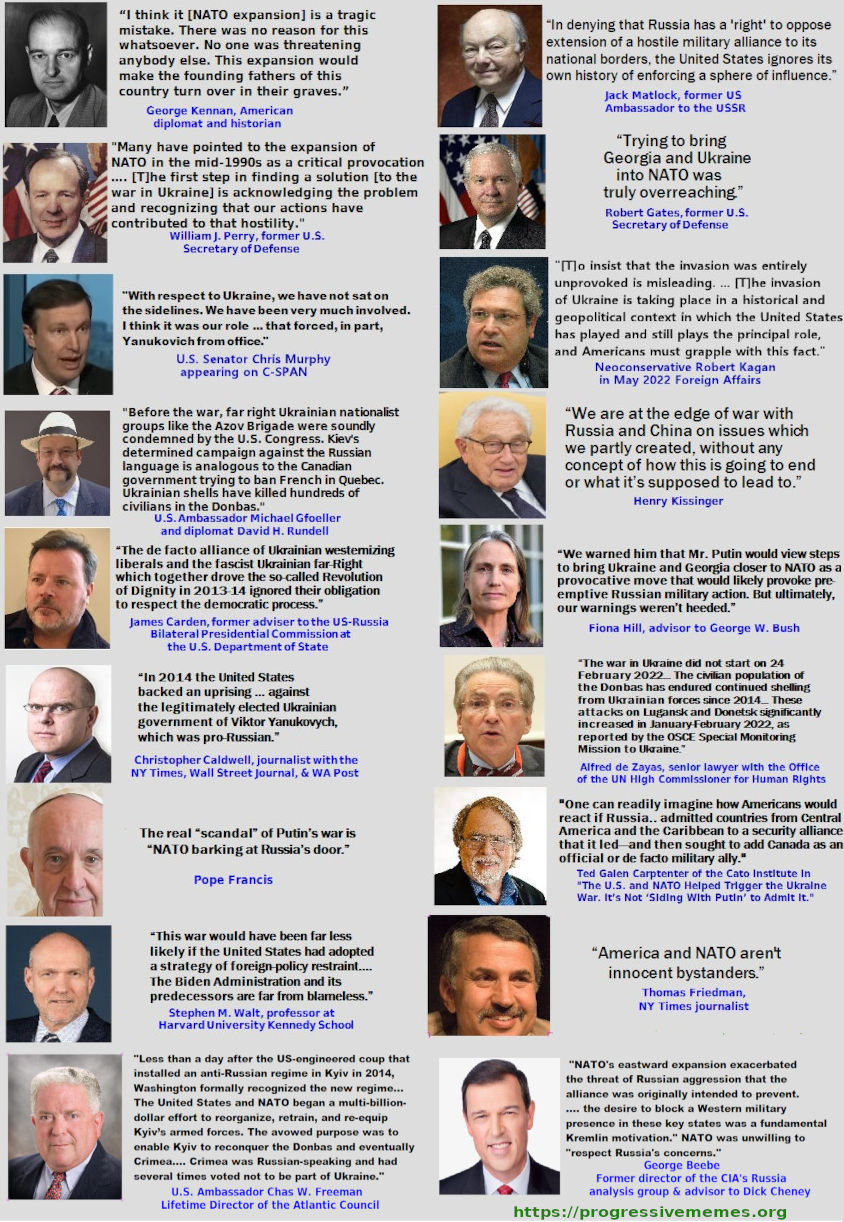The Ukraine Papers
Senior U.S. Diplomats, Journalists, Academics and Secretaries of Defense Say: the U.S. Provoked Russia in Ukraine
by Donald A. Smith, PhD
It took some years for Americans to realize they'd been lied to about the war in Vietnam. Thanks to the publication of the Pentagon Papers, and thanks to the antiwar movement, Americans eventually learned about the injustices and failures of that war.
Likewise, it took several years after the starts of the wars in Iraq and Afghanistan for Americans to realize they'd been lied to about those wars as well.
Americans are just now starting to realize that they've been lied to about the war in Ukraine. (The propaganda effort has been quite effective, with the New York Times, in particular, acting as a mouthpiece for the government's position.) More and more mainstream publications are exposing the lies, and
a majority of Americans
now oppose further arming of Ukraine.
This essay is a summary of what the U.S. government has been hiding about the war in Ukraine, with links to sources for further information.
It took some years for Americans to realize they'd been lied to about the war in Vietnam. Thanks to the publication of the Pentagon Papers, and thanks to the antiwar movement, Americans eventually learned about the injustices and failures of that war.
Likewise, it took several years after the starts of the wars in Iraq and Afghanistan for Americans to realize they'd been lied to about those wars as well.
Americans are just now starting to realize that they've been lied to about the war in Ukraine. (The propaganda effort has been quite effective, with the New York Times, in particular, acting as a mouthpiece for the government's position.) More and more mainstream publications are exposing the lies, and a majority of Americans now oppose further arming of Ukraine.
This essay is a summary of what the U.S. government has been hiding about the war in Ukraine, with links to sources for further information.
According to Brown University's Costs of War project, U.S. military actions since 9/11 directly killed over 900,000 people, with an additional 3.5 million people dying from indirect effects. The wars cost Americans at least $8 trillion and displaced over 38 million people from their homes. The U.S. spends over a trillion dollars a year on its military, if you count all expenditures.
If we go back to the 1960s, the number killed by U.S. wars includes the several million killed in the Vietnam war, the approximately 1 million killed by U.S. support for Indonesian military's attacks on left wing groups, and the hundreds of thousands, at least, killed in proxy wars and government overthrows in Latin America.
The wars, overthrows, and associated sanctions caused mass migrations worldwide -- particularly in Europe and at the southern U.S. border -- and destabilized politics. The Lancet medical journal reported that between 1971 and 2021, US and EU sanctions killed over half a million people annually. Yet almost nobody (except for whistleblowers) was held accountable for these disasters; indeed, many of the same people are in Congress or work for the government or the weapons industry.
Moreover, the U.S. government lied about almost all the wars -- in particular, about the wars in Vietnam, Iraq, and Afghanistan, but also about the war in Yugoslavia, as documented in Harper's Magazine, here (Chapter 3), and here. In short, the Kosovo Liberation Army that the U.S. supported was, basically, a terrorist organization funded by the CIA, and U.S. propaganda greatly overstated the nobility of the U.S. intervention. Likewise, The U.S. backed ethnic cleansing of Serbs in Croatia.
The United States withdrew from the following arms treaties: Anti-Ballistic Missile (ABM) Treaty, Strategic Arms Reduction (START II)Treaty, Intermediate-Range Nuclear Forces (INF) Treaty, Joint Comprehensive Plan of Action (JCPOA), the Iran deal, Open Skies Treaty, and Conventional Armed Forces Treaty (Russia withdrew after alleged NATO non-compliance)
So, it should come as no surprise that our government is lying now about the war in Ukraine. Specifically, claims by President Biden and others that the Russian invasion was "unprovoked" are greatly exaggerated.
Read what these diplomats, secretaries of Defense, journalists, academics, politicians, and others have to say:
| Former U.S. Ambassador to the USSR Jack Matlock says in Ukraine: Tragedy of a Nation Divided: “Interference by the United States and its NATO allies in Ukraine's civil struggle has exacerbated the crisis within Ukraine, undermined the possibility of bringing the two easternmost provinces back under Kyiv's control, and raised the specter of possible conflict between nuclear-armed powers. Furthermore, in denying that Russia has a 'right' to oppose extension of a hostile military alliance to its national borders, the United States ignores its own history of declaring and enforcing for two centuries a sphere of influence in the Western hemisphere.” |
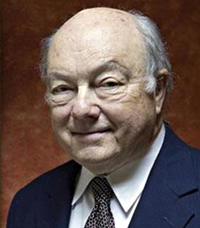 |
| Diplomat and historian George Kennan, quoted in Thomas Friedman's This Is Putin's War. But America and NATO Aren't Innocent Bystanders, discussing NATO expansion: “I think it is the beginning of a new cold war. I think the Russians will gradually react quite adversely and it will affect their policies. I think it is a tragic mistake. There was no reason for this whatsoever. No one was threatening anybody else. This expansion would make the founding fathers of this country turn over in their graves.” |
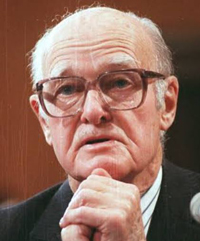 |
| William J. Perry, Secretary of Defense under President Bill Clinton, wrote How the US Lost Russia -- and How We Can Restore Relations in Sept. of 2022:
"Many have pointed to the expansion of NATO in the mid-1990s as a critical provocation. At the time, I opposed that expansion, in part for fear of the effect on Russian-U.S. relations -- .Still, the first step in finding a solution [to the war in Ukraine] is acknowledging the problem and recognizing that our actions have contributed to that hostility.” |
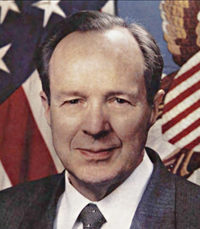 |
| Robert Gates, Secretary of Defense under George W. Bush, in We Always Knew the Dangers of NATO Expansion: "[T]rying to bring Georgia and Ukraine into NATO was truly overreaching, -- recklessly ignoring what the Russians considered their own vital national interests." |
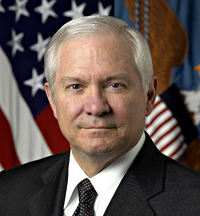 |
|
Defense Secretary Robert McNamara and 49 other U.S. foreign policy experts wrote to President Bill Clinton in 1997: "We, the undersigned, believe that the current US-led effort to expand NATO, the focus of the recent Helsinki and Paris Summits, is a policy error of historic proportions. We believe that NATO expansion will decrease allied security and unsettle European stability." |
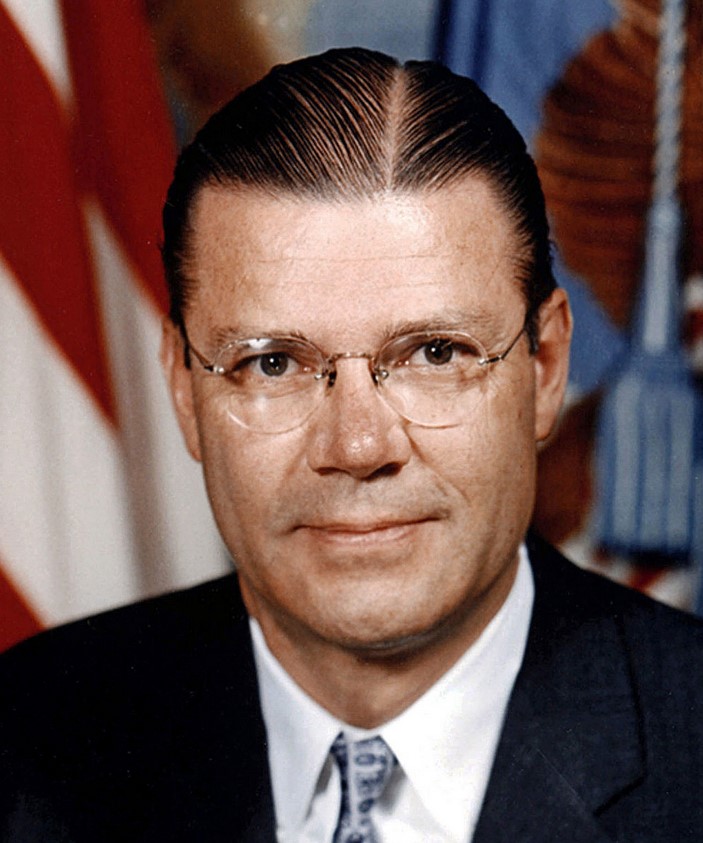 |
| Ambassador Michael Gfoeller and David H. Rundell: in Newsweek's Lessons From the US Civil War Show Why Ukraine Can't Win: “Before the war, far right Ukrainian nationalist groups like the Azov Brigade were soundly condemned by the US Congress. Kiev's determined campaign against the Russian language is analogous to the Canadian government trying to ban French in Quebec. Ukrainian shells have killed hundreds of civilians in the Donbas and there are emerging reports of Ukrainian war crimes. The truly moral course of action would be to end this war with negotiations rather than prolong the suffering of the Ukrainian people in a conflict they are unlikely to win without risking American lives.” |
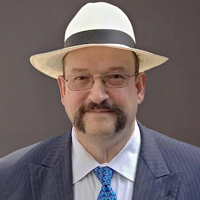 |
| Christopher Caldwell: in the New York Times' The War in Ukraine May Be Impossible to Stop. And the US Deserves Much of the Blame: “In 2014 the United States backed an uprising -- in its final stages a violent uprising -- against the legitimately elected Ukrainian government of Viktor Yanukovych, which was pro-Russian.” |
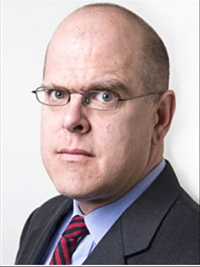 |
| Chas W. Freeman, former U.S. Ambassador to Saudi Arabia and a Lifetime Director of the Atlantic Council, says in The Many Lessons of the War in Ukraine: "Less than a day after the US-engineered coup that installed an anti-Russian regime in Kyiv in 2014, Washington formally recognized the new regime... The United States and NATO began a multi-billion-dollar effort to reorganize, retrain, and re-equip Kyiv's armed forces. The avowed purpose was to enable Kyiv to reconquer the Donbas and eventually Crimea.... Crimea was Russian-speaking and had several times voted not to be part of Ukraine." And: "From 2014 to 2022, the civil war in Donbas took nearly 15,000 lives." Freeman says that the U.S. undermined several possible peace deals. "Ukraine is being eviscerated on the altar of Russophobia" but Russia has not, after all, been weakened. See this. | 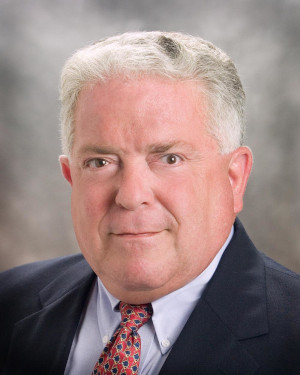 |
William J. Burns, then Ambassador to Russia, current director of the CIA, wrote in a 2008 cable, as revealed by Wikileaks:
Foreign Minister Lavrov and other senior officials have reiterated strong opposition, stressing that Russia would view further eastward expansion as a potential military threat. NATO enlargement, particularly to Ukraine, remains "an emotional and neuralgic" issue for Russia, but strategic policy considerations also underlie strong opposition to NATO membership for Ukraine and Georgia. In Ukraine, these include fears that the issue could potentially split the country in two, leading to violence or even, some claim, civil war, which would force Russia to decide whether to intervene. |
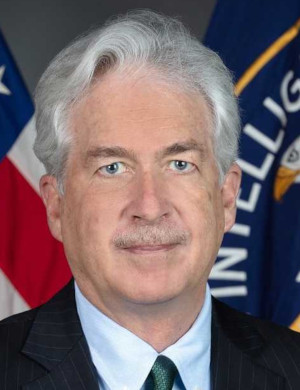
|
| Thomas Friedman: in the New York Times' This Is Putin's War. But America and NATO Aren't Innocent Bystanders: “The mystery was why the US -- which throughout the Cold War dreamed that Russia might one day have a democratic revolution and a leader who, however haltingly, would try to make Russia into a democracy and join the West -- would choose to quickly push NATO into Russia's face when it was weak. A very small group of officials and policy wonks at that time, myself included, asked that same question, but we were drowned out.”America and NATO Aren't Innocent Bystanders [from the title] |
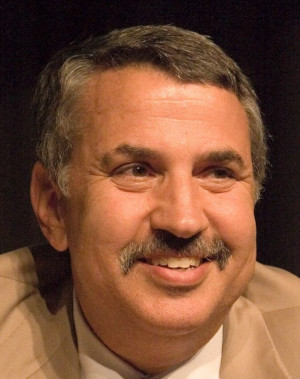 |
| U.S. Senator Chris Murphy said in an interview in 2014:
"With respect to Ukraine, we have not sat on the sidelines. We have been very much involved. Members of the Senate have been there, members of the State Department who have been on the square -- . I really think that the clear position of the United States has been in part what has helped lead to this change in regime -- . I think it was our role, including sanctions and threats of sanctions, that forced, in part, Yanukovich from office." |
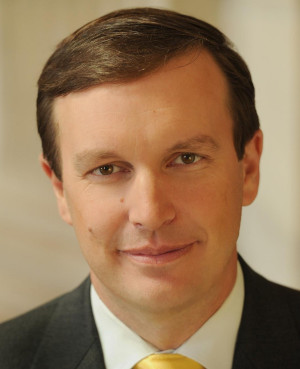 |
| Henry Kissinger in an interview with The Wall Street Journal:
"We are at the edge of war with Russia and China on issues which we partly created, without any concept of how this is going to end or what it's supposed to lead to." Kissinger also said, "To be an enemy of America can be dangerous, but to be a friend is fatal." |
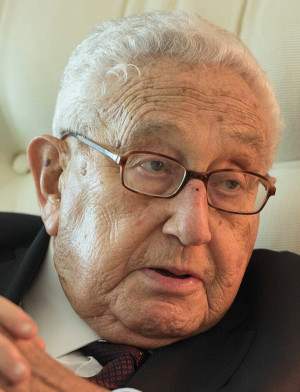 |
| Neoconservative Robert Kagan writes in an otherwise hawkish Foreign Affairs essay from May, 2022, The Price of Hegemony: Can America Learn to Use its Power?: “Although it is obscene to blame the United States for Putin's inhumane attack on Ukraine, to insist that the invasion was entirely unprovoked is misleading. …. the invasion of Ukraine is taking place in a historical and geopolitical context in which the United States has played and still plays the principal role, and Americans must grapple with this fact.” |
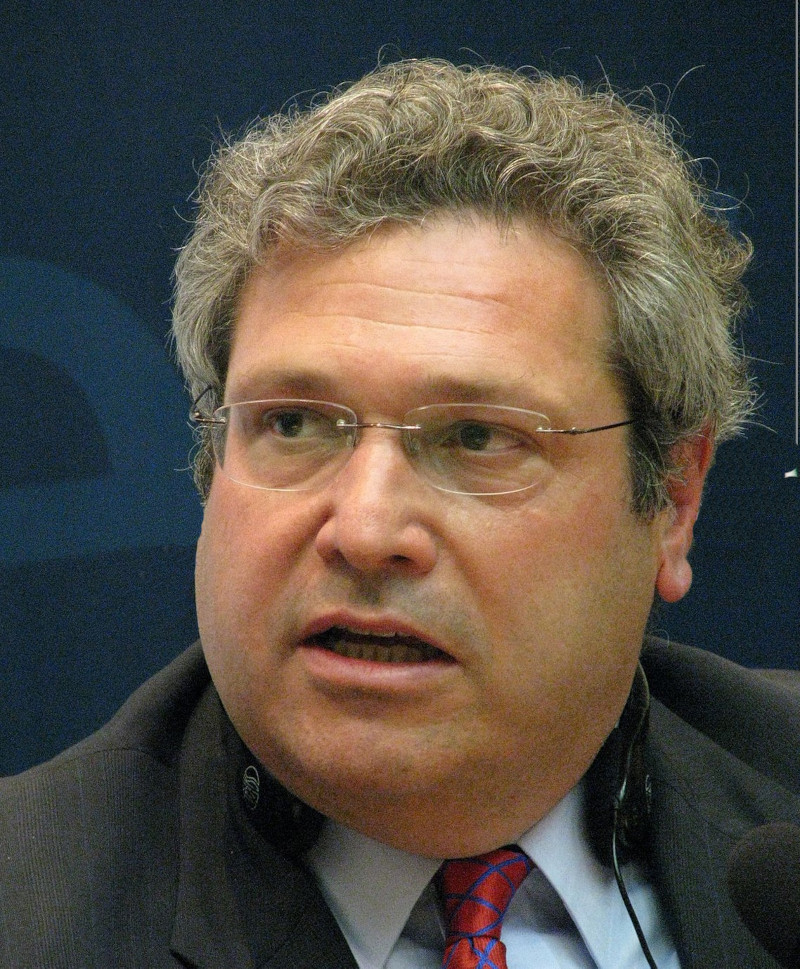 |
| Fiona Hill, former official at the U.S. National Security Council during the administration of George W. Bush, in the New York Times' Putin has the U.S. right where he wants it: “At the time, I was the national intelligence officer for Russia and Eurasia, part of a team briefing Mr. Bush. We warned him that Mr. Putin would view steps to bring Ukraine and Georgia closer to NATO as a provocative move that would likely provoke pre-emptive Russian military action. But ultimately, our warnings weren't heeded.” |
 |
| Pope Francis in Yahoo News’ Pope Francis Says NATO Started War in Ukraine by "Barking at Putin's Door": The real “scandal” of Putin’s war is NATO “barking at Putin’s door.” |
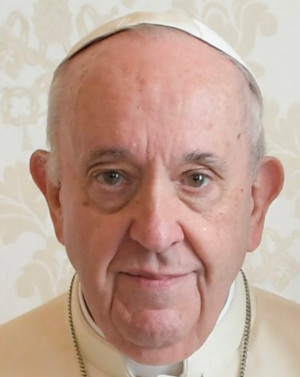 |
|
James W. Carden, journalist and former adviser to the US-Russia Bilateral Presidential Commission at the U.S. Department of State, in Simone Weil Center's America' Crisis of Reality and Realism: A Symposium (Part I):
"The de facto alliance of Ukrainian westernizing liberals and the fascist Ukrainian far-Right which together drove the so-called Revolution of Dignity in 2013-14 ignored their obligation to respect the democratic process." |
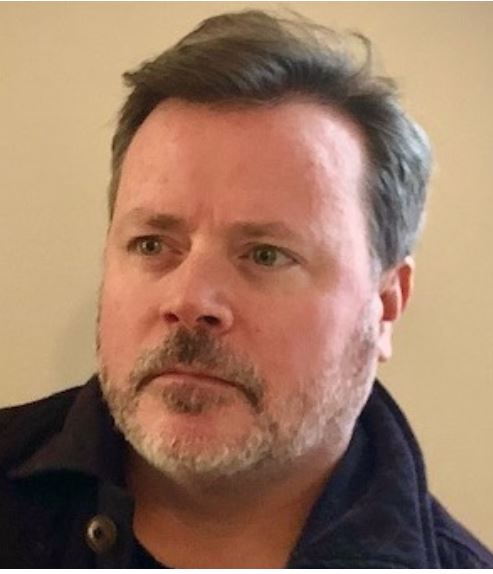 |
|
John J. Mearsheimer, University of Chicago "The West is leading Ukraine down the primrose path, and the end result is that Ukraine is going to be wrecked." (2015) |
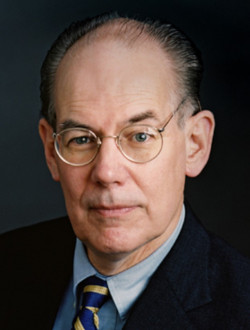 |
Former Ambassador Thomas Graham, who served under six U.S. presidents and is a member of the Council on Foreign Relations, wrote in Was the Collapse of US-Russia Relations Inevitable?: "US hubris and Russian paranoia undermined partnership."
After the collapse of the Soviet Union, a weakened Russia sought closer ties to the West and even helped George W. Bush fight the war on terror. But instead of helping Russia fight Chechen rebels, which Russia considered to be terrorists, the U.S. lent support to those rebels. The U.S. pressed its advantage, aggressively expanding NATO, instigating regime change operations in countries friendly to Russia, and undermining Russian energy exports.
Finally, in light of the growing problems with Russia in the former Soviet bloc, the US push in 2008 to bring Georgia and Ukraine into NATO was ill-advised at best. It tied together the two strands of the Bush administration's hedging policy--NATO expansion and Eurasian geopolitical pluralism--in a way guaranteed to provoke a powerful Russian backlash. Key allies, notably France and Germany, were adamantly opposed. Bush's own ambassador in Moscow warned that extending an invitation to Ukraine would cross the "brightest of red lines" and elicit sharp condemnation across the political spectrum. | 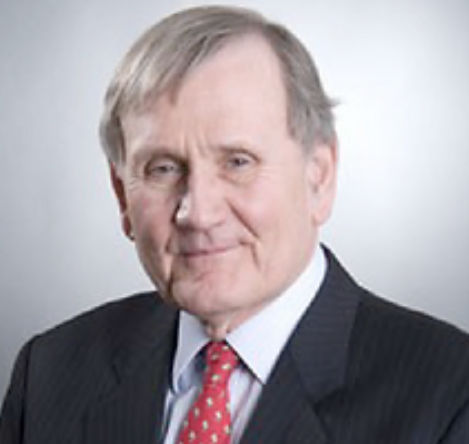 |
| NATO Secretary Jens Stoltenberg, in Opening remarks at the joint meeting of the European Parliament's Committee on Foreign Affairs (AFET) and the Subcommittee on Security and Defence (SEDE): Putin "went to war to prevent NATO, more NATO, close to his borders." |
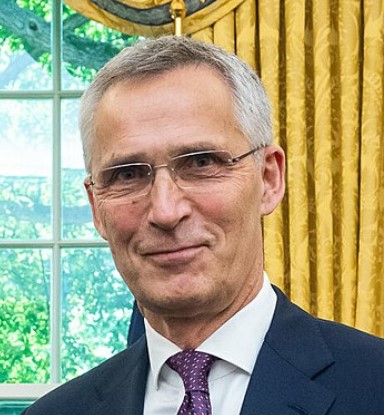 |
| Stephen M. Walt, professor and former Academic Dean at Harvard's Kennedy School, in an essay in Foreign Policy: "This war would have been far less likely if the United States had adopted a strategy of foreign-policy restraint…. The Biden Administration and its predecessors are far from blameless." |
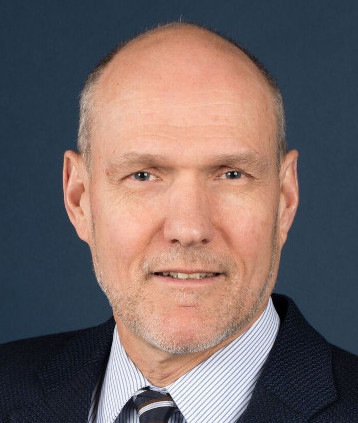 |
| Michael Brenner, professor at University of Pittsburgh, in How to Think about the Ukraine War after 18 Months: "[T]he provocations as you enumerated them were very great. And whether there was any alternative for Russia other than this recourse to a military solution, is a difficult question." |
 |
|
Richard Sakwa, Professor at Univ. of Kent and author of multiple books on Russia and Ukraine
in Book Talk: The Lost Peace:
"The argument that the invasion was unprovoked is completely false." "The global north, once again, it's got this obsession, obsessive tendency to fall into war, endlessly. So the global north clearly is shooting itself in the foot. Blowback is going to be massive." |
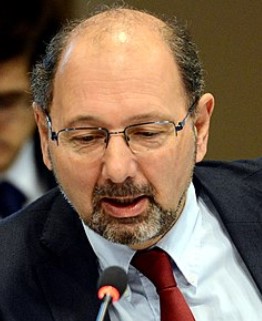
|
| Ted Galen Carpenter of the Cato Institute in The US and NATO Helped Trigger the Ukraine War. It's Not 'Siding With Putin' to Admit It: “One can readily imagine how Americans would react if Russia, China, India, or another peer competitor admitted countries from Central America and the Caribbean to a security alliance that it led -- and then sought to add Canada as an official or de facto military ally. It is highly probable that the United States would have responded by going to war years ago. Yet even though Ukraine has an importance to Russia comparable to Canada's importance to the United States, our leaders expected Moscow to respond passively to the growing encroachment.They have been proven disastrously wrong, and thanks to their ineptitude, the world is now a far more dangerous place.” |
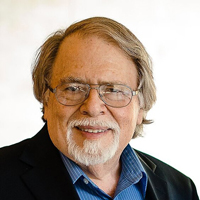 |
| Alfred de Zayas, a former senior lawyer with the Office of the UN High Commissioner for Human Rights, says in The Ukraine War in the Light of the UN Charter: "The war in Ukraine did not start on 24 February 2022, but already in February 2014. The civilian population of the Donbas has endured continued shelling from Ukrainian forces since 2014, notwithstanding the Minsk Agreements. These attacks on Lugansk and Donetsk significantly increased in January-February 2022, as reported by the OSCE Special Monitoring Mission to Ukraine." |
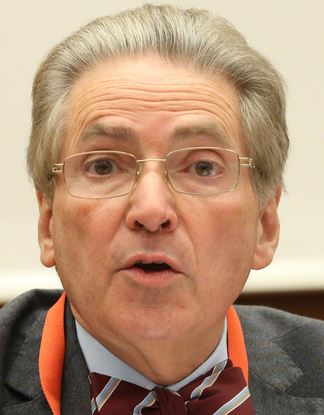 |
| George Beebe, former director of the CIA's Russia analysis group and former advisor to Dick Cheney,
writes in When does NATO actually promote US interests?:
"NATO's eastward expansion exacerbated the threat of Russian aggression that the alliance was originally intended to prevent. .... While not the sole cause of Medvedev's invasion of Georgia in 2008 and Putin's invasion of Ukraine in 2022, the desire to block a Western military presence in these key states was a fundamental Kremlin motivation." Beebe said that NATO was unwilling to "respect Russia's concerns." |
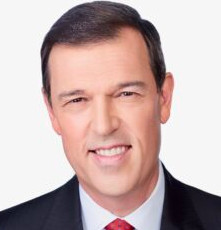 |
| Steven Pifer, former U.S. Ambassador to Ukraine,
writes in Russia feels threatened by NATO. There's history behind that:
"There are some concerns on the Russian side that are legitimate." |
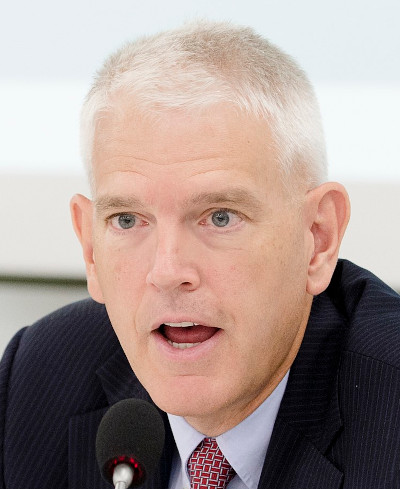 |
| Ro Khanna, Member of Congress,
tweeted (referenced, too, here):
"Ever since the “Orange Revolution” began under President Bush, the U.S. has been complicit in the rehabilitation and spread of Neo-Nazis in Ukraine. Enough is enough! Our government must stand up to the Azov Battlion and other fascist groups." |
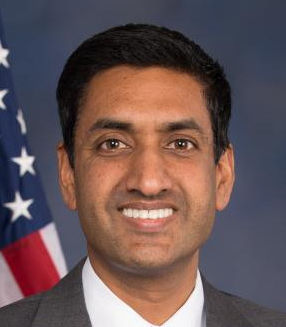 |
| Bernie Sanders, U.S. Senator, Right before the Russian invasion, Sanders gave a speech in which he spoke of warnings by U.S. diplomats about NATO expansion. Vladimir Putin may be a liar and a demagogue, but it is hypocritical for the United States to insist that we do not accept the principle of “spheres of influence.” For the last 200 years our country has operated under the Monroe Doctrine... Does anyone really believe that the United States would not have something to say if, for example, Mexico was to form a military alliance with a U.S. adversary? |
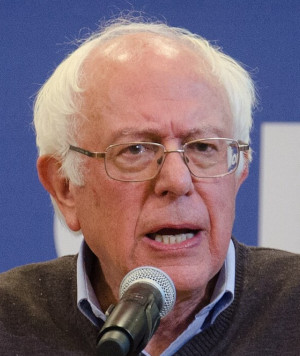 |
| Melvin Goodman, former CIA analyst and Professor at National War College, From What If the Conventional Wisdom About Putin’s War is Mostly Wrong?: What if Putin needs to have some security guarantees regarding the steady expansion of NATO that finds Russia’s western border virtually entirely encircled by NATO’s military forces? ... U.S. strategists and policymakers have always paraded behind the flag of greater support for the democratization of key East European countries, when the real purpose of U.S. diplomacy and deployment in Europe has been to maintain pressure on the Soviet Union and on Russia. ... Our regional missile defenses in Poland and Romania are unneeded, and the original justification for them as a defense against Iran’s missile program was risible.... |
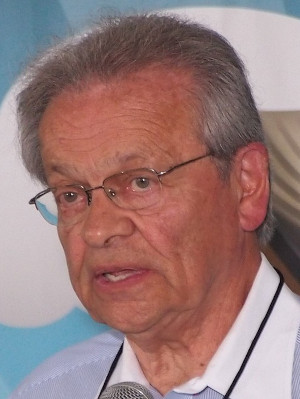 |
|
Journalist Patrick Lawrence, describing how the media toe the government line and don't tell the entire story. "You don't have to be a graduate student in history at the University of Wisconsin to know what went on before February 24th, 2022. Thirty years of it, right? And then the coup in 2014, the eight years of bombardment, savage bombardment of Russian speakers in the East, it's all there. But the media erase it with exceptional daring. And the force of media, the force of incessant presentation makes this kind of thing so regrettably effective. Yeah, that's what we mean by context. Perfect example." (source). |
 |
Ambassador Jack Matlock (referenced above) said in a 2024 interview: "Why don’t we understand that trying to remove Ukraine from Russian influence and put military bases there would be, in their case, absolutely unacceptable and worthy of defense?" Matlock said the U.S. backed the 2014 coup, and "Obviously, to any Russian leader, not just Vladimir Putin, that would have been an absolutely impossible, hostile act, which they had to react to. And in particular, they were not going to lose their naval base in Crimea." Finally, Matlock said the Ukrainians are "dominated in their thinking by neo-Nazis — we tend to ignore that, or when Putin points it out, we say he’s lying. He’s not lying." And Matlock wrote: "I have been appalled that a succession of American presidents and European leaders discarded the diplomacy that ended the Cold War, abandoned the agreements that curbed the nuclear arms race, and provoked a new cold war which has now become hot."
See this for dozens of mainstream news articles about the presence Nazis in Ukraine and U.S. support for them.
Evidence of U.S. involvement in the coup is overwhelming. The Cato Institute (not a radical Marxist outfit!) wrote America’ Ukraine Hypocrisy which includes:
The extent of the Obama administration’ meddling in Ukraine’ politics was breathtaking. Russian intelligence intercepted and leaked to the international media a [U.S. Assistant Secretary of State Victoria] Nuland telephone call in which she and U.S. ambassador to Ukraine Geoffey Pyatt discussed in detail their preferences for specific personnel in a post-Yanukovych government... Both the Obama administration and most of the American news media portrayed the Euromaidan Revolution as a spontaneous, popular uprising against a corrupt and brutal government... It was a grotesque distortion to portray the events in Ukraine as a purely indigenous, popular uprising.
The 2019 RAND Corporation study Overextending and Unbalancing Russia examines “cost-imposing options that the United States and its allies could pursue across economic, political, and military areas to stress -- overextend and unbalance -- Russia's economy and armed forces and the regime's political standing at home and abroad." It includes the paragraph:
"Providing lethal aid to Ukraine would exploit Russia's greatest point of external vulnerability. But any increase in US military arms and advice to Ukraine would need to be carefully calibrated to increase the costs to Russia of sustaining its existing commitment without provoking a much wider conflict in which Russia, by reason of proximity, would have significant advantages."
The highlighted words indicate that the authors were quite aware that US provocations would cause Russia to respond militarily.
The New Yorker’s Is the F.B.I. Truly Biased Against Trump? contains a telling paragraph on the U.S. government’s efforts to suppress information about exactly what happened in Ukraine:
According to [FBI agent] Buma's statement, shortly after Russia invaded Ukraine, on February 24, 2022, he was told to terminate relations with one of his most valuable sources in that field, Dynamo. The order came from both his supervisors and the F.B.I.'s Foreign Influence Task Force, and, per Buma, superiors told him that the shutdown of Dynamo was based on "highly classified information from the National Security Agency" which he could not access. They also said that it was part of a broader effort, around the time of the invasion, to close off many "sources related to Russia/Ukraine matters."
After the collapse of the USSR, Russia wanted desperately to be integrated into the West and, up to the end of 2021, pleaded with D.C. to come to an equitable peace in Ukraine, but the U.S. wanted to weaken Russia, and NATO needed an enemy to justify its existence. The expansion of NATO -- which violated multiple verbal promises given to Soviet leaders -- provoked the war that is now touted as showing the need for NATO.
According to the LA Times's Russia feels threatened by NATO. There's history behind that, "some of Russia's security concerns are real. Offering to discuss them doesn't qualify as appeasement; Thirty years ago, Russia had a buffer zone of satellite states to its west. Now it has only the unimpressive presence of Belarus."
From 2018, in Medium's American Lethal Weapons Could Already Be on the Ukrainian Front Line: "Two weeks ago, the Trump administration announced it will allow the sale of some lethal weapons to Ukraine, including the Javelin anti-tank missile....Butusov identified the [Nazi] Azov Battalion as a recipient of the PSRL-1 [grenade launcher] systems."
Right before the Russian invasion, in January of 2022, Yahoo News reported: CIA-trained Ukrainian paramilitaries may take central role if Russia invades. After the invasion, in March of 2022, Yahoo News reported: Secret CIA training program in Ukraine helped Kyiv prepare for Russian invasion..
In November of 2023, the Washington Post exposed that "Since 2015, the CIA has spent tens of millions of dollars to transform Ukraine's Soviet-formed services into potent allies against Moscow, officials said.... The extent of the CIA's involvement with Ukraine's security services has not previously been disclosed." Foreign Policy's essay of July 11, 2025 mentions the "CIA’s decade of covert support for Ukraine."
Likewise, a New York Times article The Spy War: How the C.I.A. Secretly Helps Ukraine Fight Putin, dated February 25, 2024, revealed that the CIA had been coordinating with Ukrainian intelligence since at least 2014 and that the Ukrainians had been launching assasinations and other kinetic actions in Crimea and Russia. As Mark Episkopos writes in Responsible Statecraft, CIA in Ukraine: Why is this not seen as provocation?: "An explosive new NYT report shows how Washington needlessly fed into Russia's worst fears and precipitated the invasion, justified or not."
The U.S. repeatedly stymied peace deals that could have prevented or ended the war. After 2014, the U.S. shipped arms to Ukraine, encouraging it not to implement the Minsk Agreements meant to keep the peace in Ukraine. Reuters reported: "In an interview published in Germany's Zeit magazine on Wednesday, former German chancellor Angela Merkel said that the Minsk agreements had been an attempt to 'give Ukraine time' to build up its defences." Zelensky apparently admitted the same thing. In December of 2021, the Biden administration refused to negotiate concerning Ukrainian entry to NATO. And the U.S. prevented a peace deal even after Russia's invasion, as reported here: "Former Israeli Prime Minister Naftali Bennett said in an interview posted to his YouTube channel on Saturday that the US and its Western allies 'blocked' his efforts of mediating between Russia and Ukraine to bring an end to the war in its early days."
Likewise, the American Conservative published Why Peace Talks, But No Peace? (The U.S. has prevented earnest negotiations and prolonged the war in Ukraine.):
Three separate times in the early weeks of the war, negotiations produced the real possibility of peace. The third even yielded a tentative agreement that was, according to Putin, signed. Both sides made "huge concessions," including Ukraine promising each time not to join NATO. But each time, the U.S. put a stop to the promise of a diplomatic solution and peace, allowing the war to go on and to escalate, seemingly in the pursuit of U.S., not Ukrainian, interests.
In fact, according to Ukrainian Official Confirms Russia Was Ready to End War in March 2022 If Kyiv Agreed to Neutrality:
David Arakhamia, a high-ranking member of Volodymyr Zelensky's Servant of the People political party, said that Kyiv could have ended the war with Russia after a month if it agreed not to join NATO. The official said that Moscow was not concerned about other issues, such as "denazification," but only wanted Kyiv to agree to neutrality.
In an interview with TV channel 1+1, a Ukrainian network, Arakhamia confirmed previous reporting that Moscow and Kyiv had nearly agreed to end the war in March 2022. Still, Ukraine's Western backers pushed it to try to win the war against Russia
The Jerusalem Post reported the same thing: Ukrainian negotiator: Russia promised peace if Ukraine dropped NATO aspirations.
An WSJ/NORC poll taken in June of 2022 showed that 58% of Ukrainians polled thought that the U.S. bears a great deal or some responsibility for the war. They knew what the U.S. did.
As Dennis Kucinich said, the U.S. government used "the good, courageous people of Ukraine as pawns in a vicious and deadly geo-political chess game which began well before the illegal Russian invasion. And it is now planning to do for the people of Taiwan what it has done for the people of Ukraine, portraying China as the aggressor while surrounding China with about 200 military bases." Indeed, the 354 page RAND report Extending Russia: Competing from Advantageous Ground used a chess board to illustrate the geopolitical competition with Russia and recommended arming Ukraine to over-extend Russia.
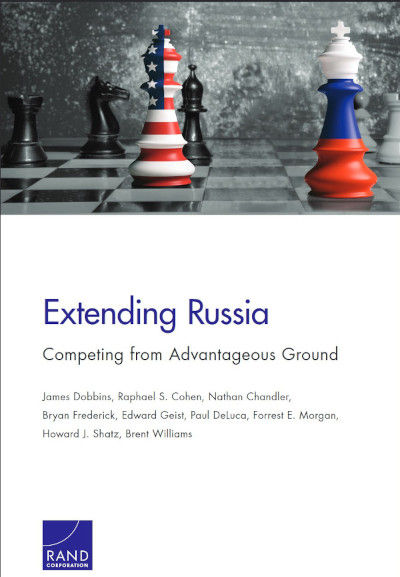
For the neocons, foreign policy is just a game.
Douglas MacKinnon, a former writer in the White House for Presidents Ronald Reagan and George H.W. Bush and special assistant for policy and communications at the Pentagon, says a similar thing in Raise your privileged hand if you're willing to 'fight to the last Ukrainian':
If the rationale by our government, the United Kingdom and others in Europe (along with much of the media, academia and various defense contractors) was to use Ukraine and its people as cheap disposable pawns to be sacrificed in a proxy war against Vladimir Putin and Russia, then they are succeeding at a certain macabre level.
However, if the idea of supporting the Ukraine war with Russia was to "save the people of Ukraine" and the country's infrastructure, then those who advocated for that course of action have failed miserably.
See Harper's Why are We in Ukraine? for a mainstream accounting of U.S. provocations in Ukraine and elsewhere. Jeffrey Sachs' The War in Ukraine Was Provoked -- and Why That Matters to Achieve Peace is another excellent essay on the issue, as is Chris Hedges' They Lied About Afghanistan. They Lied About Iraq. And They Are Lying About Ukraine. Sachs also wrote the useful The Biden-Schumer Plan to Kill More Ukrainians and Why Won't the US Help Negotiate a Peaceful End to the War in Ukraine?. Benjamin Abelow's How the West Brought War to Ukraine is a thorough account of U.S. provocations, similar to this essay.
'Now or Never': The Immediate Origins of Putin's Preventative War on Ukraine in the Journal of Military and Strategic Studies outlines the reasons for Russia's invasion, as expressed by Vladimir Putin: NATO expansion and the threat Russians felt that posed to their security. It reports increased attacks by Ukrainian troops against separatists in the Donbas right before the invasion.
For copious detail about U.S. provocations see How the U.S. provoked Russia in Ukraine: A Compendium.
The propagandists who continue to push for arming Ukraine say that the people of Ukraine were eager to join the West and that the Maidan Revolution was a grassroots expression of pro-Western sentiment. Instead, there is evidence that the revolution was largely the creation of U.S. regime change meddling, aided by the so-called National Endowment for Democracy (a CIA offshoot); see the Compendium above for documentation. Certainly, most of the people in Eastern Ukraine and Crimea did not want closer ties with the West. A majority of the people of Crimea welcomed Russia’s annexation of their territory in 2014, according to Denis Volkov and Andrei Kolesnikov’s piece in Carnegie Endowment for Peace: My Country, Right or Wrong: Russian Public Opinion on Ukraine. Forbes reported in 2015: One Year After Russia Annexed Crimea, Locals Prefer Moscow To Kiev. Likewise, John O'Loughlin, Gerad Toal and Kristin M. Bakke wrote: To Russia With Love: A Majority of Crimeans are Still Glad for Their Annexation in Foreign Affairs (April 3, 2020).
So, the U.S. intervened to aid "liberation" movements against Russian allies in Afghanistan, Yugoslavia, Libya, and Syria -- allying with Muslim extremists to do so -- but the U.S. condemns Russia for intervening to aid Russian-speaking people along Russia's own borders, in a conflict against Nazi militias supported by the U.S. and driven by aggressive NATO expansion.
The U.S. bombed Iran, has been bombing Somalia, attacked Venezuelan boats, and is preparing some sort of war on Venezuela.
The U.S. occupies one third of the sovereign nation of Syria, with help from its proxy army, the Syrian Democratic Forces. The U.S. allied with al Qaeda and other extremist groups in Syria, as reported here, here and here, killing 100s of thousands of Syrians through brutal sanctions, leading to the downfall of Assad.
Likewise, U.S. troops remain in Iraq, despite the opposition of the Iraqi government. So, it's quite hypocritical for the U.S. to reject a ceasefire which allows Russia to occupy Russian-speaking areas of Ukraine which voted overwhelmingly for closer ties with Russia.
Would the U.S. allow Russia to overthrow the government of Canada, install the new Prime Minister, ban the official use of English, build up its military, and ally with and arm anti-American militias? U.S. hyprocrisy is stunning, given that it bombs and overthrows countries far from its borders. Russia was reacting to U.S. provocations in its neighbor Ukraine, which is historically and linguistically closely tied to Russia.
These facts and opinions do not justify Russia's brutal invasion, but they certainly give the lie to statements by President Biden and others that the invasion was "unprovoked." Even the Russian occupation of Crimea in 2014 was provoked: it occurred after, and partially in response to, the U.S.-backed overthrow of the pro-Russian government of Ukraine.
And the facts expose amazing hyprocrisy. The U.S. launched numerous unjustified wars and proxy wars; surrounded Russia and China with pro-US allies and military bases (about 800 worldwide); exited multiple arms treaties; and increased military spending to about $1 trillion a year despite $34 trillion in debt and dire domestic needs. Yet we accuse Russia and China of being the aggressors.
Both sides can be at fault in a conflict. The U.S. too has blood on its hands.
Finally, the facts are strong reasons why the U.S. should not be arming Ukraine to the teeth, pushing it to fight to the last Ukrainian and risking a nuclear war. Instead, it should push for a negotiated end to the war.
Below is a concise graphic version of the above essay. Click on it to get a higher resolution version.
See too Why it is so important to expose U.S. provocations in Ukraine and Four Increasingly Cynical Views about the War in Ukraine.
Scott Horton's masterful Provoked is a 900-page accounting of U.S. steps to provoke the war. here for a review and summary.
Comment on this essay
Donald A. Smith is a writer, a peace activist working with CodePink, a Democratic Precinct Committee Officer, the editor of http://waliberals.org, and the creator of https://progressivememes.org. He lives in Bellevue, Washington and has a PhD in Computer Science.
